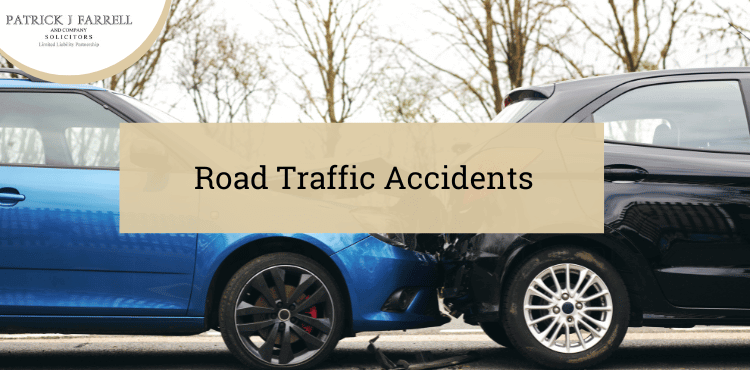
Road Traffic Accidents
Hopefully, you will never find yourself involved in a road traffic accident. However, an accident can happen at any time and many accidents happen on short journeys close to home. If you ever find yourself involved in a road traffic accident, this is what you should do:
1. If someone is injured, you should get help immediately by contacting the Gardai and Ambulance Service on 999.
2. Be sure to write down the names of the Gardai at the scene of the accident. Make sure that you get important relevant information from the other drivers to include their name, address and telephone number. You should also make a note the colour, make, model and vehicle registration number of all of the cars involved. Get a note of their insurance details (i.e. the name of the insurance company and the insurance policy number) which you will find on their insurance disk on their windscreen.
3. If there are any witnesses to the accident, be sure to get their names and contact details. Try to get witnesses details as soon as possible because they tend to leave the scene within a short period of time.
4. Try to stay calm and do not discuss who was at fault for the accident. Your immediate impression might not be reliable. Try and remember what was said between you and the other driver at the scene of the accident and as soon as you reasonably can, write it down.
5. Most mobile phones nowadays have a camera. If possible, take a photo of the scene of the accident, the signs and roadmarkings, the damage done to each car and position of the vehicles before they are moved. If you do not have a camera phone, see if a witness has one.
6. When you get home, make a note of the details of the accident, writing down everything that comes to mind. If possible, draw a sketch of the collision which may assist you later on.
7. Call your insurance company. All insurance policies require you to notify your insurance company immediately of an accident regardless of whether it is your fault. It is important that you do this.
8. Keep a record of all your doctor’s appointments and remember to keep all receipts in relation to medication, consultation fees and travelling expenses. Take photographs of your injuries after the accident. As your injuries develop (i.e. bruising), continue to take photographs.
9. If someone else is at fault, you are entitled to have your car repaired at a main dealer for your make of car. The insurer of the other driver will send an assessor to inspect the car and agree the repair bill with your garage who will generally wait to be paid by the other driver’s insurance company where they are at fault.
10. Contact us at Patrick J Farrell and Company. We understand how frustrating it can be to deal with insurance companies and we understand the worry of how to pay your medical expenses. You should not settle your claim directly with your insurance company without obtaining legal advice from your Solicitor.*
Road traffic accident statistics:
Road traffic accidents are one of the most common causes of personal injuries in Ireland. The most common factors that lead to fatalities and serious injuries on our roads are speed, alcohol, fatigue, failure to wear a seatbelt and failure to alter driving for weather conditions. All of these factors are easy to avoid.
There were 212 deaths on Irish roads in 2010. The 212 people who died consisted of 44 pedestrians, 5 cyclists, 55 passengers, 91 drivers and 17 motorcyclists.
The statistics also show that:
1. 38% of deaths were of those aged under 25.
2. Sunday was the most dangerous day of the week with 54 deaths.
3. 43% of road deaths happened at the weekend.
4. The hours between 6pm and 8pm were the most dangerous with 27 deaths happening at this time.
5. The average monthly fatality rate was 18.
6. The safest month of the year was December when 10 deaths occurred.
* In contentious business a solicitor may not calculate fees or other charges as a percentage or proportion of any award or settlement.
Have You Been Affected By a Personal Injury?
Let the Experts Stand By You.
At Patrick J Farrell & Company Solicitors, we understand the profound impact personal injuries can have on your life. With a legacy founded by Patrick J. Farrell and carried forward by a dedicated team, we have been advocates for justice for over four decades. Our commitment to putting our clients’ interests first, combined with our extensive legal expertise, makes us the ideal partners in your pursuit of justice.
From the moment you walk through our doors to the resolution of your case, you’ll be treated with the utmost courtesy, respect, and understanding. Choose us – where your well-being is our top priority. Reach out to us today and let our experienced solicitors guide you every step of the way.
More Personal Injury Resources
Our guide to Personal Injury cases
Motor Insurers Bureau (MIBI) and accidents with uninsured drivers
Mental health, PTSD and Accidents – When to Get Advice from a Solicitor